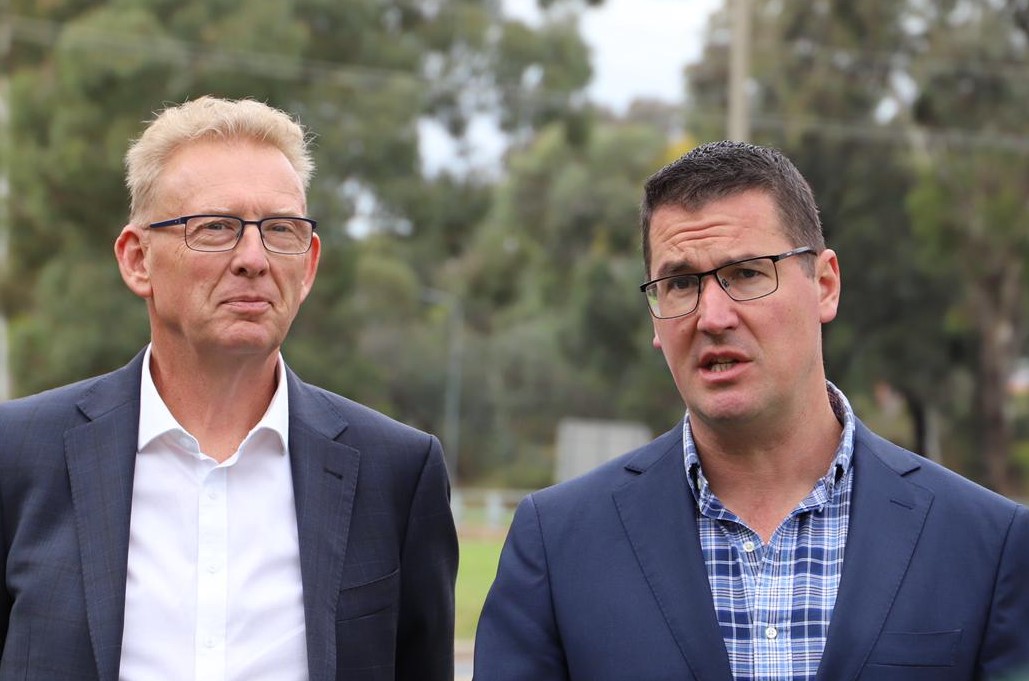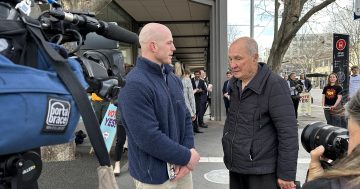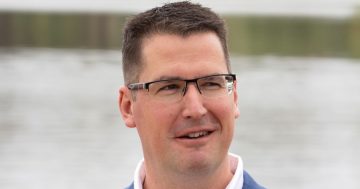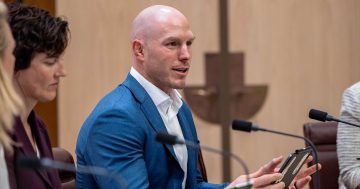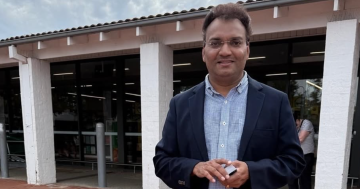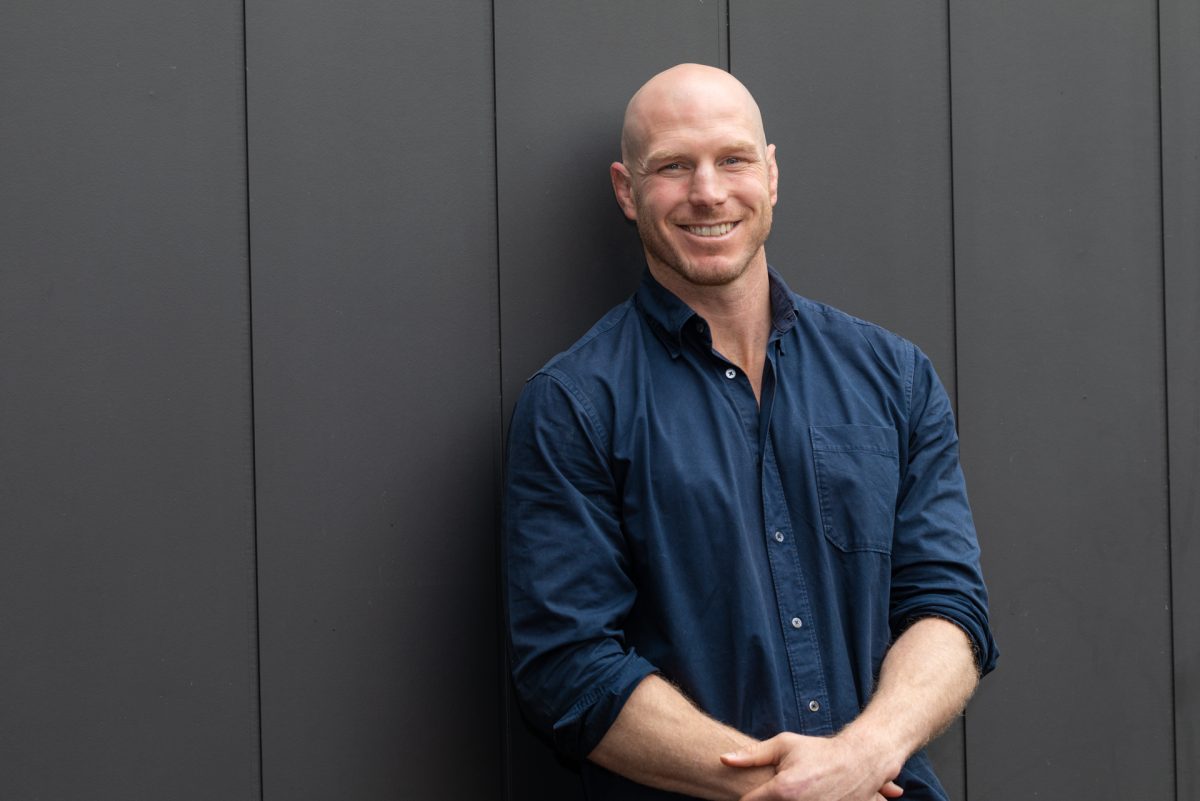
David Pocock appears to have done the impossible. Photo: Michelle Kroll.
David Pocock’s achievement in the ACT Senate race is a tremendous result for him personally, for Canberra, and is the wake-up call the local Liberal Party needed.
The second Senate seat will go to preferences, but the great majority of them will flow one way – to Mr Pocock, who is less than 2,000 votes behind Senator Zed Seselja, who is pinning his slim hopes on pre-polls and postal votes.
I thought it couldn’t be done.
But cometh the hour, cometh the man.
Perhaps it could have also been cometh the woman, with the Greens’ Tjanara Goreng Goreng and the other Independent Kim Rubenstein in the mix to exploit the palpable antipathy towards Zed Seselja and join the clutch of women Independents that so decimated the Liberals’ blue-ribbon seats.
Senator Seselja’s opponents ticked off on the key issues – climate change, integrity, territory rights and a fair share of infrastructure spending.
But Mr Pocock brought something extra to the campaign, charisma if you like, a strong, articulate and dignified presence in the face of dirty campaign attacks via corflutes or robocalls, and a highly mobilised support team.
Leadership on the football field does not always translate to other arenas, but the former Wallaby skipper showed that his skillset extended beyond rugby.
I suspect that the more people Mr Pocock met, the more he impressed, and that clearly developed momentum.
Mr Pocock has “presence”, doesn’t appear to be easily fazed. In the ruck and maul of the new Senate, where the crossbenchers will be able to wield considerable power, he should be able to find friends, make alliances, negotiate firmly and deliver for Canberra.
Don’t expect rivers of cash to flow for a new convention centre or stadium, although let’s not rule them out, but given the ACT’s new political landscape, it will be in the Albanese Government’s interests to keep Mr Pocock on side and not take Canberra for granted, as the previous government so obviously did.
It will certainly also help to have Senator Katy Gallagher as a senior minister, and the pair of them should make formidable advocates for Canberra, along with the Labor MPs.
Labor is likely to reach 76 seats to form a majority government, but there will still be a big crossbench. In the Senate, where legislation lives and dies, the Greens and Independents will hold the whip hand, although they will certainly not operate as a bloc.
The new government will have to collaborate, compromise, make deals, be creative and become a problem solver, something Mr Albanese is not new to and appears to already understand.
Throughout the campaign, some, particularly the usual suspects in the Murdoch press, argued this would mean chaos and instability.
(And a word of warning to Mr Albanese, don’t pay much attention to those foaming mouths who will try to corral the new government while plotting its downfall from day one.)
It may get messy, real democracy usually is, but out of it could come good, inclusive policy and a change from the zero-sum game that pitted people against each other and meant a decade has gone by without any movement on key issues.
Mr Pocock says he is committed to a different way of doing politics, and while on the surface he may seem the antithesis of the professional women who took their revenge on the Prime Minister on election night, he will bring his own brand of soft power to the Parliament.
He is a diversity champion who called out homophobia on the rugby field. He supported same-sex marriage and backs women’s rights and gender equity.
He is also committed to an anti-corruption commission, sustainability and greater action on climate change.
Mr Pocock, while being his own man, will not be out of place among those other Independents and Greens coming into the Parliament.
His success, therefore, is part of a bigger change in the Australian polity. During the campaign, when it became apparent that Mr Pocock did indeed pose a threat to the status quo, I said that if he did manage to pull it off the result would have to be part of a seismic shift in the political landscape.
That earthquake has come to pass.
It opens up a whole range of new possibilities – for Canberra and the nation it serves.
Election analysis with Dr Andrew Hughes and Genevieve Jacobs
We're live at the ANU College of Business and Economics with Dr Andrew Hughes and Genevieve Jacobs as we unpack a historic election.
Posted by The Riotact on Saturday, May 21, 2022














